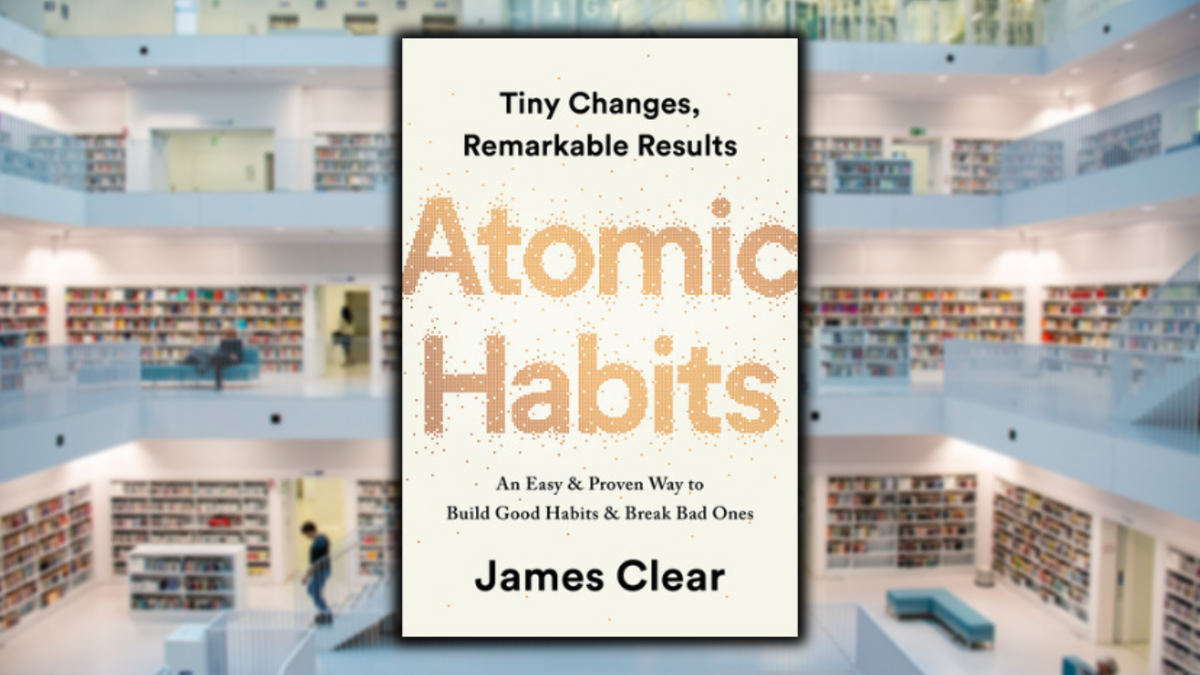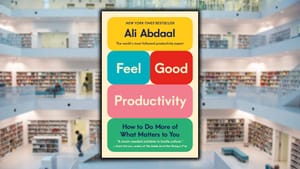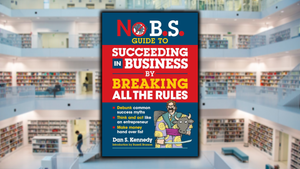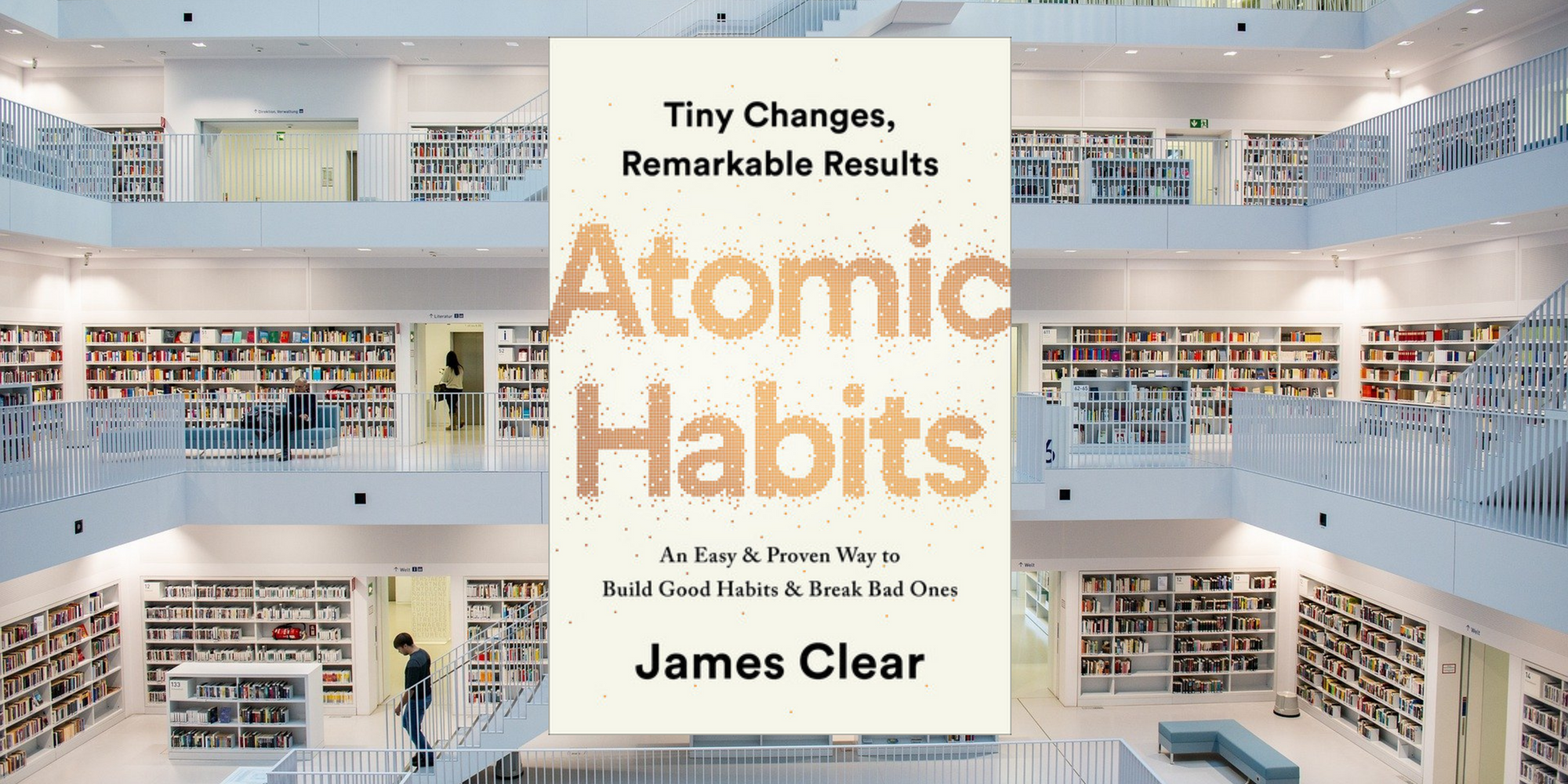
Summary:
I would call Atomic Habits the definitive book on habits. It’s a 4-million-copy bestseller that I believe has lived up to all the hype, and I ended up with about 8 pages of notes, most of which have been reproduced below. I mean, this thing is packed with everything you need to know in order to set yourself up for every kind of success in the future.
One of the most powerful ideas for me was the idea that we should be far more concerned about our current trajectory than with our current results.
This idea stuck with me so powerfully, in fact, that it still pops into my head, unbidden, more than a year after I first read the book. The fact is that it takes time to get where we want to be in life, but the only thing we have absolute control over is the direction in which we’re heading.
Many years ago, Socrates would be asked many times, “How does one get to Mount Olympus?” Olympus, if you recall, is where all the gods hung out. How do we get to the top, to heaven, to our goal, basically?
Socrates would always say, “Make sure that every step you take is in that direction.” Good habits are steps, and when you have all your habits aligned with your destination, you almost can’t help but arrive there eventually. Everyone who has ever succeeded at anything, ever, has started out extremely far away from where they wanted to end up.
So the trajectory idea is big. One of the other big ideas was that every single action you take is like a vote for the person you want to become. If you want to get fit, then every time you go to the gym or eat a healthy meal is a vote for who you will be in the future. Every time you pick up a book, you’re voting to become a reader. Take those two ideas alone and you can change your life. But there’s so much more to this book, it’s astonishing.
James Clear has hundreds of thousands of people who get his email newsletter on habits and personal fulfillment (I’m one of them), and the central question that he’s trying to answer through his work, according to him, is, “How can we live better?”
He’s spent years and years focusing on this question; reading, listening, learning, observing, speaking with people who are killing it in life, and he’s taken every single thing he’s learned and jammed it into this book.
So it’s no secret that I’m a fan of his work, and a fan of this book. I want you to read it. I really do. But the reality is that there’s already a ton of information out there. He and I would be extremely disappointed if you just read this book quickly and didn’t do anything with it.
Information is cheaply available; it’s action that’s rare, and that’s where your greatest success lies. So read the book, read these key ideas that I’m going to share with you, and then bring this stuff into the rest of your life to make it better.
As Clear says, we don’t rise to the level of our goals, or what we say we’re going to do; we fall to the level of our habits. ‘Atomic’ habits are the smallest-resolution things that you can do immediately, today, now, that will let you steamroll past everything that’s been holding you back. So let’s get moving!
Key Ideas:
#1: The quality of our lives depends on the qualities of our habits.
#2: Habits work exactly like compound interest. We may not notice any difference on a day-by-day basis, but over a long enough timescale, our progress will be nothing less than astonishing. Therefore, you should be far more concerned with your current trajectory than with your current results.
#3: Our results (our lives) are a lagging measure of our habits. If we're poor now but we have good money habits, then, in time, we'll most likely be rich. If we're out of shape now but we eat well and exercise regularly, then in time, we'll most likely be fit.
#4: Time magnifies the margin between success and failure. It will multiply whatever you feed it. Good habits make time your ally. Bad habits make time your enemy.
#5: In any compounding effect, the most powerful results are delayed, which means that the biggest gains come at the end, while at the beginning, progress looks small. Thus, it may look as though all our hard work is being wasted, when in reality it's actually being stored.
#6: Winners and losers both have the same goals, but winners have systems too. Your goals provide your direction, and your systems (diet plan, investment strategy, business plan) provide you with a game plan, they set out the work you must do each day in order to be successful in your chosen endeavor.
#7: True behavior change is actually identity change. Every action you take is a vote for the kind of person you wish to become.
#8: In order to develop a good habit, make it obvious (clear when and where you should do it), attractive (something you want to do), easy (simple and within your capabilities), and satisfying (something that makes you feel good for having done it).
#9: In order to quit a bad habit, make it invisible (remove temptations), unattractive (remind yourself why you're quitting), difficult (inconvenient), and unsatisfying (something that makes you feel bad after doing it).
#10: Habits are context-dependent, meaning that we usually do them in the same place at the same time. No matter whether you want to develop a good habit or quit a bad one, becoming aware of when and where you perform this habit will give you incredibly useful information.
#11: Habits form based on the frequency of repetition, not necessarily based on time. It's harder to make something a habit if you only do it once a week.
#12: The most effective form of motivation is progress. When you see that your habits are working, you're going to find it easier to keep them going.
#13: Lost days hurt you more than successful days help you, so make sure that you never put up a zero. And if you ever miss a day, make sure to get started on another streak as soon as possible. Missing once is an accident, but missing twice is the start of a new habit.
#14: You have to make sure you're tracking the right things. For example, your weight could stay the same, but your body fat percentage could be going down, while at the same time you're putting on muscle. In that case, the scale would stay the same, and if you just went by that, you'd think that what you were doing wasn't working.
#15: It’s remarkable what you can build if you just don’t stop. It's remarkable the business you can build if you don't stop working. It's remarkable the body you can build if you don't stop training. It's remarkable the knowledge you can build if you don't stop learning. It's remarkable the fortune you can build if you don't stop saving. It's remarkable the friendships you can build if you don't stop caring.

Book Notes:
The quality of our lives depends on the qualities of our habits.
If you get 1% better every day for one year, it goes like this: 1.01 to the power of 365 = 37.78 times better at the end of the year.
Habits are the compound interest of self-improvement. The same way that money multiplies through compound interest, the effects of your habits multiply as you repeat them. They seem to make little difference on any given day, and yet the impact they deliver over the months and years can be enormous. It is only when looking back two, five, or perhaps ten years later that the value of good habits and the cost of bad ones becomes strikingly apparent.
You should be far more concerned about your current trajectory than your current results.
Your outcomes are a lagging measure of your habits. Your net worth is a lagging measure of your financial habits. Your weight is a lagging measure of your eating habits. Your knowledge is a lagging measure of your learning habits. Your clutter is a lagging measure of your cleaning habits. You get what you repeat.
If you want to predict where you'll end up in life, all you have to do is follow the curve of tiny gains or tiny losses, and see how your daily choices will compound ten or twenty years down the line.
Time magnifies the margin between success and failure. It will multiply whatever you feed it. Good habits make time your ally. Bad habits make time your enemy.
In any compounding, the most powerful results are delayed.
Just like cancer is undetectable for years before taking over your body within months, good habits may not appear to be working until you cross a threshold and unleash amazing progress all at once.
Complaining about not achieving success despite working hard is like complaining about an ice cube not melting when you heated it from 25 to 31 degrees.
Your work isn’t being wasted, it’s just being stored. Change can take years - until it happens all at once.
It is not until months or years later that we realize the true value of the previous work we have done. This can result in a "valley of disappointment" where people feel discouraged after putting in weeks or months of hard work without experiencing any results. However, this work was not wasted. It is simply being stored, and if we can persist through the time when results aren't coming as fast as we would like, we suddenly lift ourselves out of the valley of disappointment and progress shoots up even faster than we expected, had we been looking for simple linear progress.
Goals are good for setting a direction, but systems are best for making progress.
Winners and losers have the same goals. However, they have different systems for getting there, if the losers even have systems at all.
Achieving a goal is only a temporary change, such as publishing a book, but writing a page each day is the system that will help you achieve it. You’ll only keep writing books if you keep writing, and you’ll only have a clean house if you keep cleaning.
Fix the inputs, and the outputs will fix themselves.
If you’re proud of your body, you will fight to maintain it. Once your pride gets involved, you’ll fight tooth and nail to maintain your habits.
True behavior change is identity change. Improvements are only temporary until they become part of who you are. Your behaviors are usually a reflection of your identity.
When your behavior and your identity are fully aligned, you are no longer pursuing behavior change. You are simply acting like the type of person you already believe yourself to be.
Constantly upgrade and expand your identity.
The more you repeat a behavior, the more you reinforce the identity associated with that behavior.
Your habits contribute most of the evidence that shapes your identity.
We are continually undergoing micro-evolutions of the self.
Every action you take is a vote for the kind of person you wish to become.
If a change is meaningful, it is actually big. That’s the paradox of making small improvements.
The most practical way to change who you are is to change what you do.
Each time you write a page, you’re a writer. Each time you go to the gym, you’re an athlete. Each time you volunteer, you are a morally committed individual.
Majorities win elections, you don’t need a unanimous decision. In the same way, all you need is more progress than regression.
Decide the type of person you want to be, and then prove it to yourself with small wins.
You can also work backward from the results you want to get to the type of person you’d have to become in order to get those results.
Every craving is linked to a desire to change your internal state.
Things that are cues to some people, like the ringing of slot machines, are just background noise to other people.
If a behavior is insufficient in any of the four stages, it will not become a habit. Eliminate the cue and the habit will never start. Reduce the craving and you won't experience enough motivation to act. Make the behavior difficult and you won't be able to do it. And if the reward fails to satisfy your desire, then you'll have no reason to do it again in the future. Without the first three steps, a behavior will not occur. Without all four, a behavior will not be repeated.
The cue triggers a craving, which motivates a response, which provides a reward, which satisfies the craving, and, ultimately, becomes associated with the cue.
All behavior is driven by the desire to solve a problem.
1st Law: Make it obvious
2nd Law: Make it attractive
3rd Law: Make it easy
4th Law: Make it satisfying
Inversion of 1st Law: Make it invisible
Inversion of 2nd Law: Make it unattractive
Inversion of 3rd Law: Make it difficult
Inversion of 4th Law: Make it unsatisfying
Carl Jung: “Until you make the unconscious conscious, it will direct your life and you will call it fate.”
One of our greatest challenges in changing habits is maintaining awareness of what we are actually doing.
All habits serve you in some way, which is why we do them. It’s whether they end up serving you in the long run that you have to decide for yourself.
We often say yes to little time wasters because we are not clear enough on what we should be doing instead.
No behavior happens in isolation. Each action becomes a cue that triggers the next behavior.
Identify a current habit you already do each day and then stack your new behavior on top.
The most consistent behaviors usually have multiple cues.
Scatter as many triggers throughout your environment as you can.
Make sure the best choice is the most obvious one.
Most people live in a world others have created for them.
Stop thinking about your environment as filled with objects. Start thinking about it as filled with relationships.
Habits can be easier to change in a new environment.
When you start mixing contexts, you’ll start mixing habits - and the easier ones will usually win out.
“Every habit should have a home.”
If you want behaviors that are stable and predictable, you need an environment that is stable and predictable.
Spend less time in tempting situations and you won’t give in so much.
Backfire: You can stress a smoker out by showing them pictures of blackened lungs, thereby making them reach for a cigarette.
Before a habit is learned, dopamine is released when the reward is experienced for the first time. The next time around, dopamine rises before taking action, immediately after a cue is recognized. This spike leads to a feeling of desire and a craving to take action whenever the cue is spotted. Once a habit is learned, dopamine will not rise when a reward is experienced because you already expect the reward. However, if you see a cue and expect a reward, but do not get one, then dopamine will drop in disappointment. If the reward comes a little later than expected, dopamine will drop at first, and then spike again when the reward finally comes.
More probable behaviors reinforce less probable behaviors.
Do something you already do, then do something you need to do, then do something you want to do.
Behaviors are attractive when they help us to fit in.
We imitate the habits of the close, the many, and the powerful.
One of the most effective things you can do to build better habits is to join a culture where your desired behavior is the normal behavior.
Joining a culture where people are already somewhat like you can increase your desire to change even more.
Shared identity reinforces your personal identity.
Once we fit in, we start looking for ways to stand out.
“You think you’re quitting something, but you’re not really quitting anything, because cigarettes don’t do anything for you.”
A craving is just a specific manifestation of a deeper underlying motive.
Your habits are modern-day solutions to ancient desires.
Every action is preceded by a prediction. Life feels reactive but it is actually predictive.
The cause of your habits is actually the prediction that preceded them.
Even the tiniest action is tinged with the motivation to feel differently than you do now.
We can find evidence for whatever mindset we choose.
You need to get the reps in, in order for a habit to change, and get the necessary neurocircuitry working together properly.
“Repetition is a form of change.”
Habits form based on the frequency of repetition, not on time.
Habits are automatic choices that influence the conscious decisions that follow, sometimes for hours to come.
Good choices at the beginning of the day decide what kind of a day you will end up having, as all those good choices build on each other. One bad choice early on, however, limits the potential of how good your day can actually become, and that potential is forever lost.
Your later options are constrained by your first choices.
The first two minutes of any habit should be easy.
The vital thing in order to make a habit stick is to make yourself feel successful for having performed that habit.
Immediate rewards keep you on track while the delayed rewards accumulate in the background.
We remember the ends of events more vividly, so you have to make the ending more satisfying.
Make sure that your short-term rewards are aligned with the identity of the person you want to become in the long term.
What is immediately rewarded is repeated. What is immediately punished is avoided. The most effective form of motivation is progress.
As soon as one streak ends, get started as quickly as possible on a second one. Missing once is an accident. Missing twice is the start of a new habit.
Lost days hurt you more than successful days help you.
Never think that just because you can’t perform a habit completely that you can skip it altogether.
If you start off with $100, then a 50 percent gain will take you to $150. But you only need a 33% loss to bring you back down to $100. In other words, avoiding a 33% loss is just as important as achieving a 50% gain.
Never interrupt compound interest unnecessarily.
"Never put up a zero."
It’s not always about what happens during the workout itself. It’s about becoming the type of person who doesn’t skip workouts.
Going to the gym for five minutes may not increase your performance, but it reinforces your identity.
Be careful not to track the wrong thing, like the number on the scale when you really want a lower body fat percentage, or hours spent working instead of meaningful work getting done.
A good measurement is one that, when tracked, will help guide you to a desired result.
Sometimes it’s best to focus on a measurement that gives a better indication of progress in order to stay motivated.
The more immediate and costly a mistake is, the faster you will learn from it.
To be productive, the cost of procrastination has to be higher than the cost of taking action.
To be healthy, the cost of laziness must be higher than the cost of exercise.
The prospective punishment has to be painful enough and reliably enforced.
Certain habits will be easier to form because they align more closely with your personality, and you have to work with that rather than against it.
Ask, “What feels like fun to me, but work to others?” The mark of whether you are made for a task is not whether you love it but whether you can handle the pain of the task easier than most people. When are you enjoying yourself while other people are complaining? The work that hurts you less than it hurts others is the work you were made to do.
People get so caught up in the fact that they have limits that they rarely exert the effort required to get close to them.
Work hard on the things that come easy.
The only way to become excellent is to be endlessly fascinated by doing the same thing over and over.
Habits + Deliberate Practice = Mastery
Tracking every single little thing is like looking at yourself in the mirror from an inch away, where you can see every imperfection, but never tracking anything is like never looking in the mirror at all, which is equally as bad.
The tighter we cling to an identity, the harder it becomes to grow beyond it.
A small change is unlikely to change your life. But repeated again and again and again, at some point, you’ll have to admit that that small change did in fact change your life.
"It’s remarkable what you can build if you just don’t stop. It's remarkable the business you can build if you don't stop working. It's remarkable the body you can build if you don't stop training. It's remarkable the knowledge you can build if you don't stop learning. It's remarkable the fortune you can build if you don't stop saving. It's remarkable the friendships you can build if you don't stop caring."
Small habits don’t add up. They compound.
“Awareness comes before desire.”
Happiness is the absence of desire. Happiness is the state you enter where you no longer want to change your state.
Peace occurs when you don’t change your observations into problems.
Being curious is better than being smart because being curious leads to action.
Your actions reveal your true motivations.
Self-control is difficult because it is not satisfying.
Satisfaction = Liking - Wanting
“Being poor is not having too little, but wanting more.”
Action Steps:
So you've finished reading the book. What do you do now?
#1: Decide - specifically, and in detail - who you want to become.
Don’t skip this, even if you think you already know, and regardless of how you think this advice sounds. Take some time, and write a detailed profile of yourself in the future. Write out a detailed description of your ideal self-image, the kind of person you’d like to be someday.
There’s no magic here, but it’s extremely important to define, specifically, exactly where you want to end up, and what kind of person you want to be once you get there. Then, start acting that way now. Act to become. Do the things that the person who’s already achieved those things would do. We tend to revert back to the image we have of ourselves, so please take this exercise seriously.
#2: Create a system to get you to your goals.
Goals are great, but systems are even better. Losers have goals too, but it’s winners who also have systems. Systems are the habits, actions, processes - whatever you want to call them - that will take you to your goal. For example, “Lose 20lbs” is a goal, and you may or may not get there.
But “eat smaller, healthier meals throughout the day,” “go for a run 3-4 times a week, and “drink a gallon of water a day” is all part of your system for getting there. 20lbs isn’t going to melt away tomorrow, but you can work your system today, and it’s going to get you where you want to be.
#3: Track your habits.
Get a calendar, or print some calendar pages from the internet (that’s what I do) and keep track of the habits you complete each day. Mark an “X” or something every day that you complete your habit, and don’t break the chain! Keep it somewhere you can see it easily and often, and if you do mess up, never miss a second day! It’s better to “never put up a zero” but accidents do happen. Get back on it the very next day.
#4: Measure your progress.
Progress is one of the most motivating things ever. Seriously, when I look back at who and what I used to be, in some areas I barely even recognize myself. But, because progress happens so imperceptibly over time, it’s easy to miss. So do whatever you have to in order to record some kind of chronicle of your progress. Daily physique updates on IG, a list of books you’ve read (like I have), a tracking system on your computer where you record all your numbers from things you’ve been tracking. I do this as well.
That way you can look back and see all this incredible progress you might never give yourself credit for otherwise. Be proud of what you’ve accomplished! Plus, seeing how far you’ve come will inspire you to keep going.
#5: Surround yourself with people you’d like to resemble.
You’ve probably heard that we become like the 5 people we spend the most time with, and I have to believe that some version of this is true. Certainly, the people you spend time with matters, and they influence you in all sorts of ways that aren’t obvious. So, consciously choose who you let into your circle. It could be the difference between failing and making it.
#6: Pick a good habit that you’d like to start, and then go through the following exercise:
Make it very clear when and where you’re going to perform this habit. Prep everything you need the night before, set reminders, do whatever you have to do. Next, make it more attractive, something you’re looking forward to doing. For example, combine something you hate (exercise) with something you love (music). Next, make it easy, something simple and well within your capabilities. A walk around the block, rather than signing up for an ultramarathon. Finally, make it satisfying, something that makes you feel good for having done it. A sense of accomplishment - a natural corollary to exercise - often does the trick. Repeat the process with every good habit you’d like to incorporate into your life.
#7: Pick a bad habit that you’d like to quit, and then go through the following exercise:
Make it invisible by removing all the temptations from wherever that habit takes place. That could mean getting rid of all the junk food in your house, etc. Next, make it unattractive, say, by imagining how shitty you’re likely to feel after another Netflix and Doritos binge. Next, make it more difficult to perform this negative habit. If you’ve dumped out all your liquor, then going to the liquor store (when you’re sitting at home, a 20-minute drive away) is going to satisfy this difficulty condition. Finally, make it unsatisfying, something that makes you feel bad after doing it. This isn’t hard to identify when it comes to negative habits. Repeat the process with every bad habit you’d like to banish from your life forever.
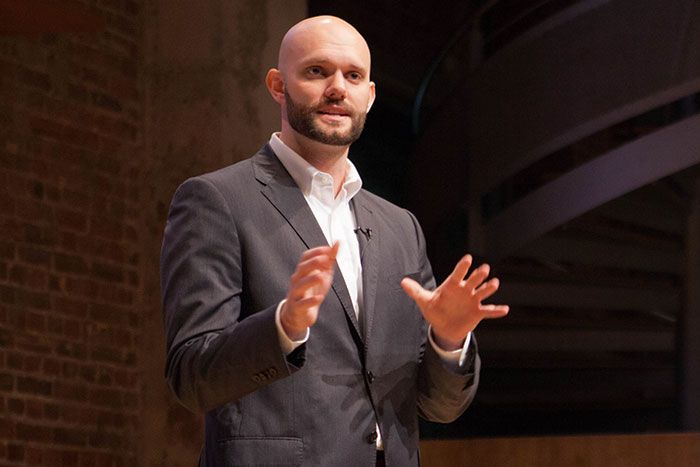
About the Author:
James Clear is an American author, entrepreneur, and photographer whose work on habits and human potential focuses on how we can live better. He writes about habits and human potential and the art and science of how to live better. James believes the best way to change the world is in concentric circles: starting with yourself and working your way out from there. His newest book, Atomic Habits, was released in October 2018 and has sold more than 3 million copies.
Additional Resources:
This Book on Amazon:
If You Liked This Book:
The 7 Habits of Highly Effective People, by Stephen R. Covey
The Slight Edge, by Jeff Olson
